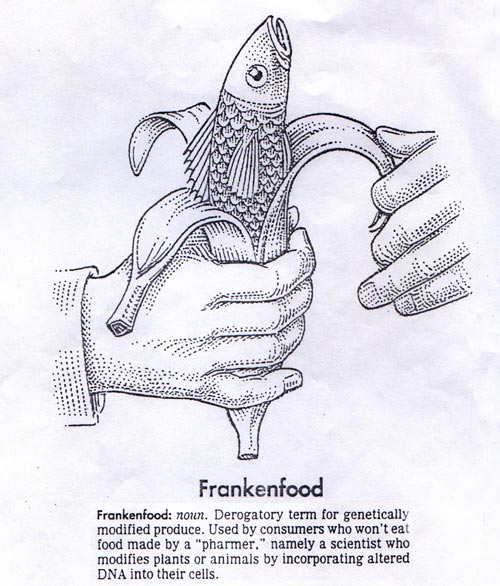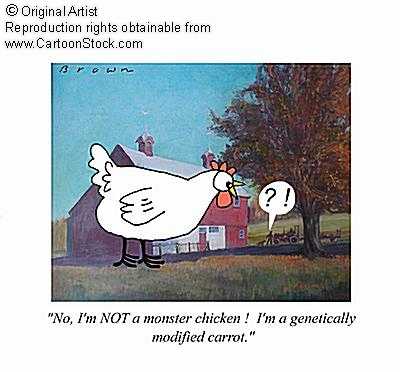
If you ever pause to wonder about what exactly is in the (likely highly processed) sandwich you are eating for lunch, and if whatever's in there is really good for you, you might want to swing by this noon to listen to my colleague Jim Prince's take as part of the Ethics Center's Spring Lecture series:
Jim Prince: “What is this I'm eating?”The class agreed to attend this talk rather than listen to me drone on in another lecture (the seminar being in the same time-slot as our Evolution class), so I expect a strong showing from the BioSc 180 students! Meanwhile, here's a few more thoughts to chew on.Biologist Jim Prince will lead a discussion of the science and ethics of genetically modified food. What are the risks? What are the benefits? Can we afford to tinker with our food sources? Can we afford not to?
Jim Prince is Professor of Molecular Genetics at Fresno State. He received his Ph.D. in plant molecular biology from Cornell University. He did postdoctoral work at the USDA and Cornell University.
Molecular biology, genetics, and biotech seem to be particularly good, among all technologies, in raising our hackles about opening Pandora's box, perhaps because they have the potential to hit us directly in our bodies - where it hurts! And perhaps as a result, breakthroughs and developments in this area seem to always stir up shrill rhetoric from both sides: those who tout the technology as almost magical solutions to world hunger and disease, and those who would raise the specter of Frankenfoods to scare the pants off of us. Take the recent green light given by the FDA for food produced from cloned animals. James McWilliams argues, as you may have seen on the Op-Ed page of the NY Times yesterday, for a more moderate, rational middle ground exploring this frontier of the precautionary principle, and I agree with his perspective. A friend of mine wrote last week to ask me what I thought about the FDA decision, and my immediate email response was that it was hard to imagine serious health issues for humans from cloned meat or other animal products. After all, we've been eating cloned plants for centuries without anyone worrying too much about it. Why do we draw a different line when it comes to cloned animals?
What do you think?














1 comments:
I think people have issue with it because, even though plants are obviously living, it seems to "weird" to eat a clone of a living thing. Most people probably associate cloned animals with cloned humans, another hot topic of debate.
Post a Comment